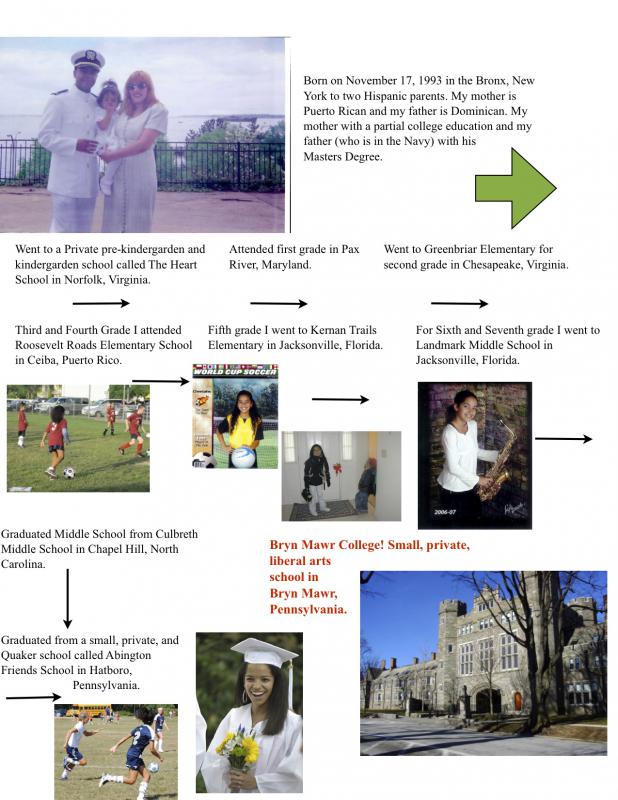Serendip is an independent site partnering with faculty at multiple colleges and universities around the world. Happy exploring!
Blogs

Week 2: Wilchins, Foucalt, and Living the Good Lie
I’ve been thinking a lot about the readings from last week, especially the Wilchins book. I was struck by Riki’s frustration with what she perceives an unwillingness of the feminist and at times the gay rights movement to collaborate with the transgender movement in order to help achieve some transgender goals. Wilchins points out that members of the constituency of feminist groups are often directly affected by issues that gender activists are working on.
She emphasizes the overlap between the gay, transgender, and feminist movements, but I think fails to adequately flesh out the unique goals of each movement. Although the three seem unquestionably related, they are by no means the same movement and do not necessarily share the same goals. It would be interesting to have seen her attempt to explore different explanations of the feminist movements’ periodic hesitancy to collaborate with the gender or gay rights movements, instead of immediately writing these decisions off as misguided and in conflict with their goals.

The Break Down of my Access Map
Home:
Born July 20, 1993. I grew up in a two parent household as an only child. My parents were very involved in my early education, reading to me and playing board games with me. My parents held positions on the PTA at my elementary and middle school. Between home and school there was an open dialect between my parents and teachers until high school.
School:

Self and Identity
Clare, Wilchins, Swartz, Barard…when trying to make sense of all of the authors swirling around in my head, the idea I keep coming back to is that of self versus identity. I’m concurrently taking a psych course that deals with this distinction, and we’ve read the works of researchers who claim that while an idea of the self is present in even the youngest of humans because it denotes the acknowledgement of an “I,” an individual being with unique likes and dislikes, the idea of an identity only develops around adolescence when one separates oneself as an individual in society, finds a social niche, and establishes a set of morals and a life philosophy. If one commits to these things during adolescence, he or she has achieved an identity. If one does not, he or she is in some sort of limbo, ranging from a state of moratorium (having gone through a period of self-exploration but not having committed to an identity) to foreclosure (commitment to a certain identity without any self-exploration) to the worst of all, diffusion (no self-exploration and no identity commitment). *

I Can Understand How You'd Be So Confused: I'm A Little Bit of Everything All Rolled Into One
As an English major, I keep thinking of James Joyce’s A Portrait of the Artist as a Young Man, in which the main character Stephen Dedalus lists his mortal presence as the following:
Stephen Dedalus
Class of Elements
Clongowes Wood College
Sallins
County Kildare
Ireland
Europe
The World
The Universe
I am struck by the expansion of self to include countries, continents, and all that is known to exist (and even that which is not, as we do not know everything about The Universe). Eli Clare writes in Exile and Pride that “The body is home, but only if it is understood that place and community and culture burrow deep into our bones. (Clare 11). I am a product of my community, my roots stretch across the depths of the Atlantic to New England, the Garden State, and Philadelphia. Each of these places has contributed to my identity, with the people who have walked into my life each bringing something for and taking something from. I am more than my physical self, more than my physical womanhood and my decision to identify as a woman. It is just that: my decision. I choose how to present myself, but I cannot deny my roots and the places I have rested my head at night.

Thoughts on Clare (and why I'm not a fan)
Like rachelr, I've been getting a little frustrated with Eli Clare. I haven't read enough of his book to feel like he is being overly repetitive; rather, my frustrations lie with his attitude. He consistently makes remarks where I just stop, put the book down, and think, "Really?" I can't stop thinking about and really being bothered by the following passage:
"At an anti-war protest not long ago, I saw a placard announcing 'An eye for an eye will make the whole world blind.' This slogan is one of many that turns disability into a metaphor, reinforces that disability means broken and is fundamentally undesirable, and ignores the multitude of actual lived disability experiences connected to war. For folks who know blindness/disability as a consequence of crushing military force, the 'eye for an eye' slogan offers a superficial rationale for nonviolence but no lasting justice. In response, I'd like to stand next to those anti-war activists and hold a placard that reads 'Another crip for peace,' or maybe, 'Blindness is sexy; military force is not'" (xii-xiii).

Stolen and Reclaimed Bodies
Eli Clare’s book, Exile and Pride, did an excellent job tying together issues of class, sexuality, and disability. Clare writes from each perspective, discussing her struggles with his gender identity, his socio-economic status, and disability. Clare makes an interesting point by saying, “Disability snarls into gender. Class wraps around race. Sexuality strains against abuse. This is how to reach beneath the skin.”(159) This ties into a common theme in Exile and Pride which is the body as home. At some point in any person’s life I am sure they have felt like their body isn’t home Society has taught us that the perfect body is something that only few people can achieve.. Anything outside the perfect, healthy, gendered, body is stigmatized.






